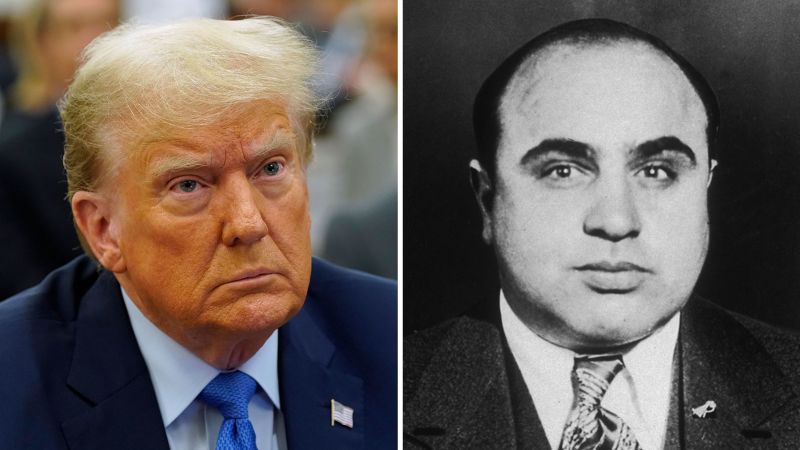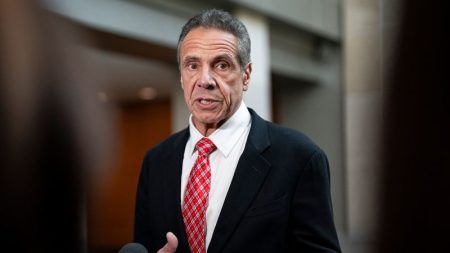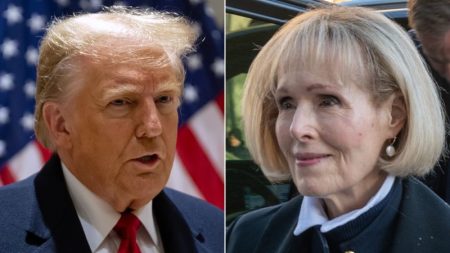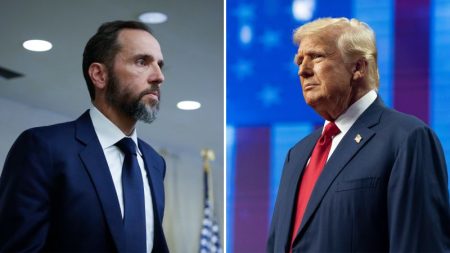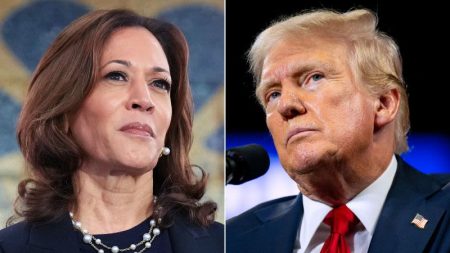Former President Donald Trump has claimed in speech after speech this fall that he has been indicted three more times than the infamous gangster Al Capone.
It’s not true.
Trump, the front-runner for the Republican presidential nomination, has deployed the claim about Capone while trying to portray himself as the victim of unfounded and politically motivated prosecutions. In a speech in Iowa on Saturday, he said, “And by the way, I’ve been indicted more times than Alphonse Capone. He’s the most vicious of all gangsters. If he took you to dinner and if you didn’t look proper, if you laughed a little bit, he might think you’re laughing at him, it’s dangerous to laugh – he’d kill you immediately. He was indicted one time. I was indicted four times.”
He similarly said in an October speech in Florida: “If you looked at him wrong, he’d kill you, and he’d kill you with his hands. He was a tough guy. He got indicted one time. I got indicted four times.”
Facts First: Trump’s claim that Capone was indicted only one time is false. Capone was indicted at least six times, as A. Brad Schwartz, the co-author of a book on Capone, told CNN.
And that doesn’t include various criminal charges against Capone that did not involve an indictment, such as some misdemeanors, or obscure Capone cases for which CNN couldn’t immediately determine whether there was an indictment.
Capone’s indictment list
It’s obviously impossible to directly compare the indictments faced by an early 20th-century gangster and a 21st-century president of the United States; they were investigated by different people for different things under different laws. But since Trump has made his claim about Capone a centerpiece of his attacks on his own criminal cases, here are the facts.
Capone was indicted three times in 1931 alone, the year he was famously convicted of tax evasion and sentenced to 11 years in federal prison. Schwartz, co-author of “Scarface and the Untouchable: Al Capone, Eliot Ness, and the Battle for Chicago,” explained that these were: “A secret indictment for tax evasion handed down in March 1931 (before the statute of limitations ran out for charges from the year 1924)”; a larger indictment in June 1931, with more than 20 counts, for tax evasion in the period from 1925 to 1929; “and a bootlegging conspiracy indictment, based on the work of Eliot Ness and his Untouchables, later that same month.”
There was more. Before the landmark 1931 conviction, Capone was indicted and convicted in 1929 for carrying concealed weapons in Philadelphia. Schwartz also noted two lesser-known indictments of Capone that did not result in a conviction: a 1926 federal indictment for conspiracy to violate Prohibition laws and a 1933 local indictment for racketeering.
And in the 1920s, Capone had other criminal court cases that either didn’t involve an indictment or that CNN couldn’t immediately determine whether an indictment was involved. (Capone used aliases, and some of these century-old records are spotty.)
These included a 1921 case related to Capone’s operation of brothels and gambling establishments, a 1922 case for assault with a vehicle and other charges (which was pointed out to CNN by journalist Jonathan Eig, author of another book on Capone), and a 1929 federal contempt of court case on which he was convicted in 1931.
Addressing Trump’s false claims about supposedly being indicted more than Capone, Schwartz added: “This isn’t a race, of course, but it may be worth noting that Capone is also way ahead in individual counts (the 1931 Prohibition indictment alone added up to five thousand conspiracy charges).” Trump faces 91 total counts over his two federal indictments and two local indictments.
One of Trump’s federal cases regards his efforts to overturn the 2020 election. The other is about his post-presidency retention of classified documents. Trump’s case in Fulton County, Georgia is also related to his election subversion efforts. His case in New York is about his alleged falsification of business records related to a hush money scheme.
Read the full article here
